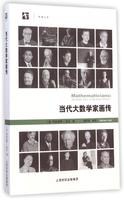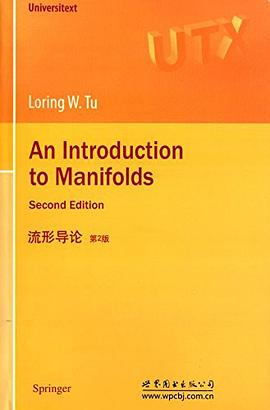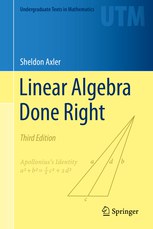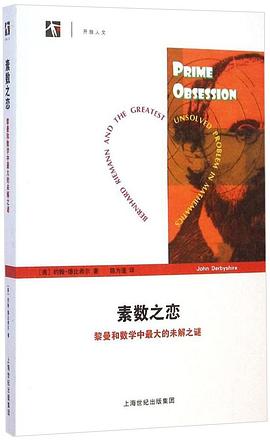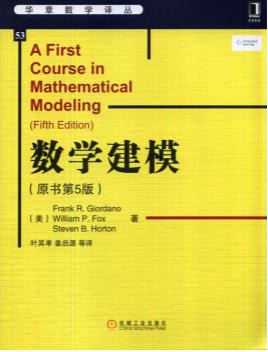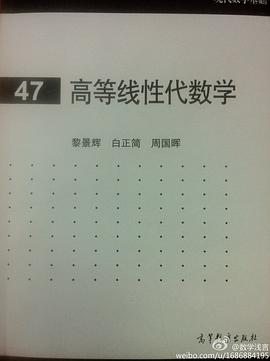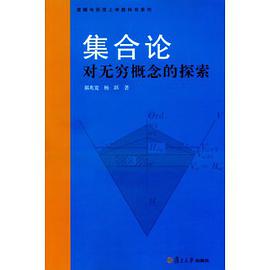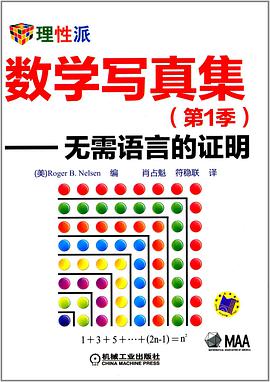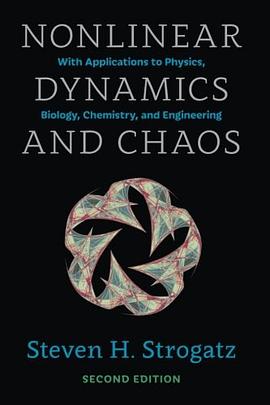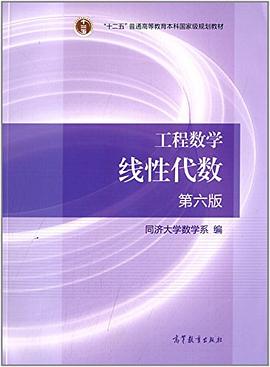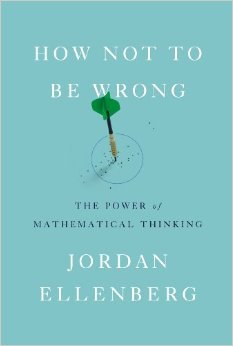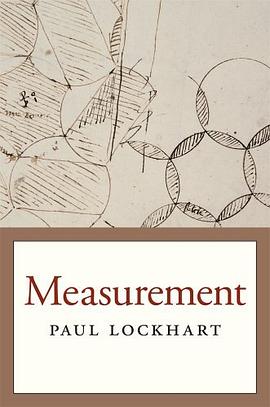

具體描述
David C. Lay holds a B.A. from Aurora University (Illinois), and an M.A. and Ph.D. from the University of California at Los Angeles. David Lay has been an educator and research mathematician since 1966, mostly at the University of Maryland, College Park. He has also served as a visiting professor at the University of Amsterdam, the Free University in Amsterdam, and the University of Kaiserslautern, Germany. He has published more than 30 research articles on functional analysis and linear algebra. As a founding member of the NSF-sponsored Linear Algebra Curriculum Study Group, David Lay has been a leader in the current movement to modernize the linear algebra curriculum. Lay is also a coauthor of several mathematics texts, including Introduction to Functional Analysis with Angus E. Taylor, Calculus and Its Applications, with L. J. Goldstein and D. I. Schneider, and Linear Algebra Gems–Assets for Undergraduate Mathematics, with D. Carlson, C. R. Johnson, and A. D. Porter. David Lay has received four university awards for teaching excellence, including, in 1996, the title of Distinguished Scholar—Teacher of the University of Maryland. In 1994, he was given one of the Mathematical Association of America’s Awards for Distinguished College or University Teaching of Mathematics. He has been elected by the university students to membership in Alpha Lambda Delta National Scholastic Honor Society and Golden Key National Honor Society. In 1989, Aurora University conferred on him the Outstanding Alumnus award. David Lay is a member of the American Mathematical Society, the Canadian Mathematical Society, the International Linear Algebra Society, the Mathematical Association of America, Sigma Xi, and the Society for Industrial and Applied Mathematics. Since 1992, he has served several terms on the national board of the Association of Christians in the Mathematical Sciences.
Steven R. Lay began his teaching career at Aurora University (Illinois) in 1971, after earning an M.A. and a Ph.D. in mathematics from the University of California at Los Angeles. His career in mathematics was interrupted for eight years while serving as a missionary in Japan. Upon his return to the States in 1998, he joined the mathematics faculty at Lee University (Tennessee) and has been there ever since. Since then he has supported his brother David in refining and expanding the scope of this popular linear algebra text, including writing most of Chapters 8 and 9. Steven is also the author of three college-level mathematics texts: Convex Sets and Their Applications, Analysis with an Introduction to Proof, and Principles of Algebra. In 1985, Steven received the Excellence in Teaching Award at Aurora University. He and David, and their father, Dr. L. Clark Lay, are all distinguished mathematicians, and in 1989 they jointly received the Outstanding Alumnus award from their alma mater, Aurora University. In 2006, Steven was honored to receive the Excellence in Scholarship Award at Lee University. He is a member of the American Mathematical Society, the Mathematics Association of America, and the Association of Christians in the Mathematical Sciences.
Judi J. McDonald joins the authorship team after working closely with David on the fourth edition. She holds a B.Sc. in Mathematics from the University of Alberta, and an M.A. and Ph.D. from the University of Wisconsin. She is currently a professor at Washington State University. She has been an educator and research mathematician since the early 90s. She has more than 35 publications in linear algebra research journals. Several undergraduate and graduate students have written projects or theses on linear algebra under Judi’s supervision. She has also worked with the mathematics outreach project Math Central http://mathcentral.uregina.ca/ and continues to be passionate about mathematics education and outreach. Judi has received three teaching awards: two Inspiring Teaching awards at the University of Regina, and the Thomas Lutz College of Arts and Sciences Teaching Award at Washington State University. She has been an active member of the International Linear Algebra Society and the Association for Women in Mathematics throughout her career and has also been a member of the Canadian Mathematical Society, the American Mathematical Society, the Mathematical Association of America, and the Society for Industrial and Applied Mathematics.
With traditional linear algebra texts, the course is relatively easy for students during the early stages as material is presented in a familiar, concrete setting. However, when abstract concepts are introduced, students often hit a wall. Instructors seem to agree that certain concepts (such as linear independence, spanning, subspace, vector space, and linear transformations) are not easily understood and require time to assimilate. These concepts are fundamental to the study of linear algebra, so students' understanding of them is vital to mastering the subject. This text makes these concepts more accessible by introducing them early in a familiar, concrete Rn setting, developing them gradually, and returning to them throughout the text so that when they are discussed in the abstract, students are readily able to understand.
用戶評價
##第一章基本讀的它,後來轉第四版瞭。但附錄不錯,有空學學說到的matlab。
評分##這是我發現的第三本颱灣交大的使用教材。。和他們的OCourse相符。。。大傢如果覺得看書太膩,就請結閤一下颱灣的OCourse視頻來學吧。 網址:http://ocw.nctu.edu.tw/riki_detail.php?pgid=50&cgid=12 (不好意思,教材是有偏差,不過聽課還是幫助蠻大的,課程的順序也基本一樣)
評分 評分##高等數學是我正式邁入高等教育殿堂的標誌,而綫性代數(以及另外兩門課)是我在邁入高等教育殿堂之前的極為重要的鋪墊、敲門磚、序麯。 這三門課都用英文教材。三本英文書各有特色,而且都很嚴密、很易懂、文筆很優美、幽默。 尤其是綫性代數的書,百轉韆迴、蕩氣迴腸。讀後,無...
評分##贊不絕口的一本書,作為畢業多年的中年人,想迴顧一下綫性代數就買瞭這本書。讀完發現這不僅是一本綫性代數,而且是一門各種數學與應用數學的入門大全。平心而論這本書理論講得不深,按照作者的原話是全書的難點是平均的。若當標準型、對偶空間、多項式這些都沒有涉及,但是其...
評分##A first course in linear algebra is dramatically different from most mathematics courses that precede it.The focus shifts from learning computational procedures to digesting and mastering basic concepts that underlie the computations.To survive,you may need...
評分##作者在開篇就給瞭綫性代數一個很新奇的定義:“從某種意義上說,綫性代數是一門語言,你要像對待外語一樣,每天都學。”書中有大量的應用實例,內容結構安排的很好,前幾章就引入子空間,嚮量,綫性變換的概念,還介紹瞭一下綫性代數的核心思想和研究內容,而後麵幾章的內容都...
評分##PCA這麼重要的東西應該與SVD一樣專門寫一段,而不是放在“7.5 圖像處理和統計學中的應用”底下當成普通例子來寫。雖然這裏PCA寫的是真清晰真透徹,秒殺網上無數介紹。另外,SVD講的太簡略瞭,看完公式也抓不住本質。最好加入幾何理解角度,並談談與PCA的異同。
評分相關圖書
本站所有内容均为互联网搜索引擎提供的公开搜索信息,本站不存储任何数据与内容,任何内容与数据均与本站无关,如有需要请联系相关搜索引擎包括但不限于百度,google,bing,sogou 等
© 2025 book.tinynews.org All Rights Reserved. 静思书屋 版权所有


